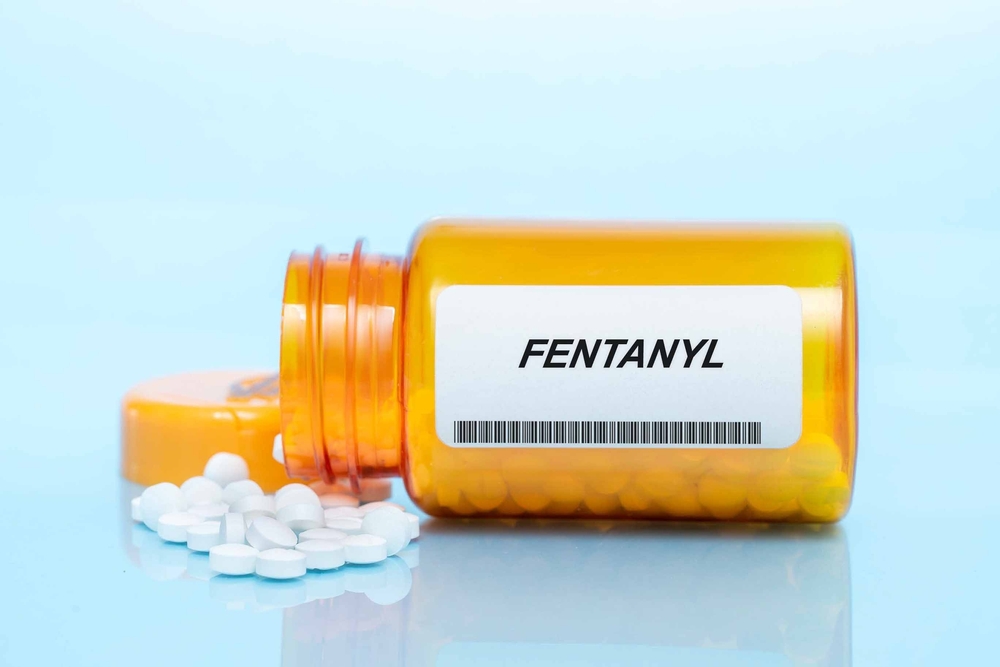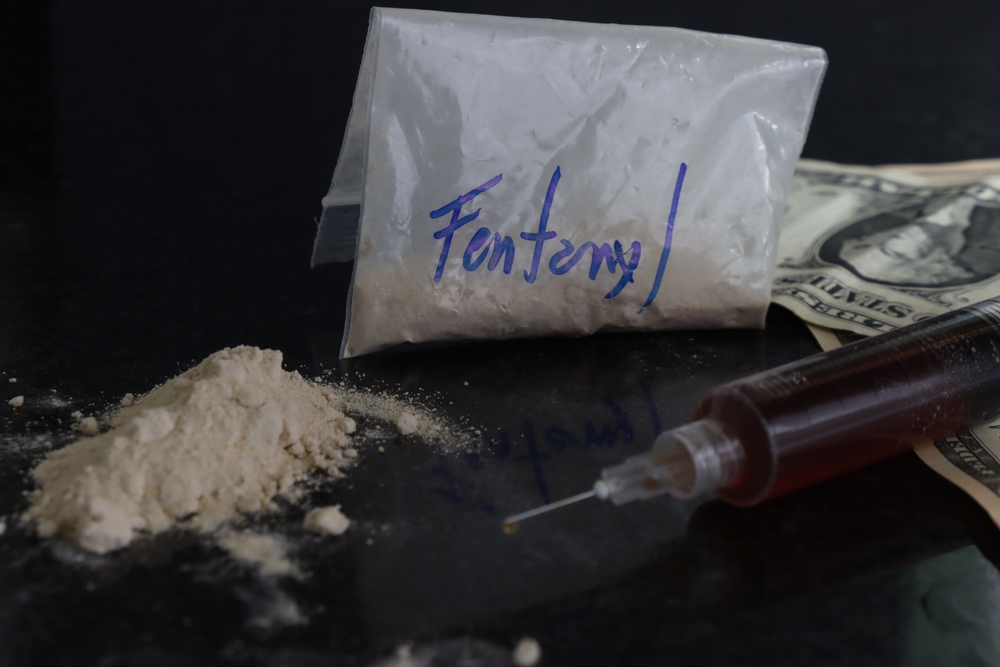Last Updated:
June 9th, 2025
Fentanyl Rehab Treatment | What to Expect
Fentanyl isn’t just another painkiller, it is a drug that is causing devastation, tragedy and loss on a scale we’ve rarely seen before. Originally developed to treat severe pain, fentanyl is now at the centre of a deadly crisis sweeping North America, tearing families apart and destroying lives overnight. If fentanyl has entered your life and you’re struggling to break free, urgent and specialised fentanyl addiction treatment can be your lifeline, helping you escape before it’s too late.

What is fentanyl rehab?
When you enter fentanyl rehab, you are stepping away from one of the most lethal substances out there and into a place designed specifically to keep you safe. The fentanyl rehab process begins by gently helping your body recover through fentanyl detox, easing withdrawal symptoms that can be intense, scary or even dangerous if tackled alone.
Once you are safely off fentanyl, rehab turns its attention to the real reasons behind your fentanyl addiction. You will work one-on-one and in groups, discovering what led you to dependency. This may have been unmanaged pain, stress or trauma or even having another drug spiked with fentanyl without you realising (very common now due to fentanyl’s potency and cheapness). By understanding these triggers, fentanyl rehab helps you build a meaningful, lasting recovery, one strong enough to keep you safe long after treatment ends.
Completing fentanyl rehab is a huge achievement but it’s crucial to have a clear plan for what comes next. Going back home means possibly facing old temptations, people, or places that might trigger a relapse. To support your lasting recovery, good fentanyl rehab programmes offer structured aftercare with ongoing therapy sessions, support networks and relapse prevention strategies, ensuring you always have someone to turn to when you’re feeling vulnerable.
Why is fentanyl rehab so important?
Fentanyl abuse and addiction are genuine public health emergencies, causing devastating consequences, especially across North America. The number of deaths involving fentanyl in the US has exploded, increasing dramatically to more than 107,000 in 2022, demonstrating the shocking speed at which this drug can destroy lives. Even though the UK hasn’t yet faced the same scale of crisis, fentanyl-related deaths continue to occur annually, highlighting the risk and potential for the problem to grow.
This is why fentanyl rehab is absolutely critical to saving lives. Without professional help, it’s incredibly difficult and risky to stop using fentanyl on your own. Fentanyl rehab offers immediate medical intervention to manage withdrawal safely, along with specialised therapies to address underlying emotional and psychological issues, dramatically improving your chances of survival and lasting recovery.
Private inpatient fentanyl rehab vs. NHS outpatient fentanyl rehab
When you are ready for fentanyl rehab, you’ll need to choose the type of treatment that matches your situation and lifestyle best. Inpatient fentanyl rehab provides a structured, supervised environment that can be a big relief if you’re struggling with intense withdrawal symptoms or anxiety or if your daily environment contributes heavily to your medication use. You will get round-the-clock support, therapy and medical care without distractions.
Alternatively, outpatient fentanyl rehab might suit you better if you have supportive people at home, can’t step away from daily obligations easily or if you feel confident managing your recovery alongside regular life. You will receive structured support, scheduled therapy sessions, and medical check-ups, but you will also be free to sleep in your own bed each night.
Here are some key distinctions to consider:
|
Choosing inpatient fentanyl rehab |
Choosing outpatient fentanyl rehab |
|
| Your living arrangements | You will stay in a peaceful, dedicated facility with continuous support | You will stay in the comfort and familiarity of your own home |
| On-hand medical assistance | Round-the-clock care and immediate response if needed | Scheduled medical support as needed but varies from programme to programme |
| Detox experience | Full, supervised onsite medical detox to ensure safety | Possible medical detox but only when available (possibly in a local hospital) |
| Therapeutic support | Intensive daily therapy and treatment | Flexible sessions around your commitments (dependent on availability) |
| Your daily routine | Structured and distraction-free to focus on healing | Freedom to continue your daily tasks and routines |
| Cost and waiting times | Private but with immediate treatment available | Often NHS-funded and more accessible but you may need to wait for a spot |
What to expect in fentanyl rehab?
If entering fentanyl rehab feels daunting, you’re certainly not alone. However, you will soon find yourself in a comforting, supportive place dedicated entirely to your recovery. Your accommodation will provide you with privacy and safety; throughout each day, you will follow a structured yet flexible schedule of therapy sessions. These may be one-on-one or in groups and include regular medical check-ins so you’re always cared for and safe.
You may also participate in relaxing, enjoyable activities like gentle exercise classes, mindfulness sessions or creative workshops such as art or music therapy. Equally important are the quiet moments built into your schedule, giving you valuable time to reflect, rest and really process your experiences at your own pace.
Every fentanyl rehab centre is unique, offering slightly different surroundings, amenities and therapy approaches. It’s worth taking time to explore your options to find the place that best suits your needs and will make your recovery journey feel both manageable and meaningful.

Therapies involved in fentanyl addiction treatment
You should also pay careful attention to the therapies that make up the fentanyl rehab programmes you are considering. These are some of the most important:
Group therapy
Joining group therapy helps you build friendships with people who can relate to your experiences. By openly discussing your journey with fentanyl, you gain valuable insights and emotional support from peers who’ve been exactly where you are.
Individual therapy (often only available in private fentanyl rehab)
Private counselling gives you the space to explore your relationship with fentanyl and why it’s become central in your life. Your therapist will help you discover healthier coping strategies, helping you find lasting freedom from fentanyl.
Holistic therapies
Holistic therapies provide relaxing activities such as art, meditation, gentle fitness or music therapy. These can soothe anxiety and physical tension and give you healthy, enjoyable ways to cope with stress and challenges without fentanyl.
Family therapy
Involving your family in therapy allows everyone to understand fentanyl addiction from each other’s perspective. These sessions help mend relationships and ensure you leave fentanyl rehab with a stronger, more understanding support network around you.
CBT and DBT
These celebrated behavioural therapies are about breaking the cycle that leads you back to fentanyl when you’re stressed or upset. You will learn straightforward ways to pause, rethink your reactions and make healthier decisions.
How to find fentanyl addiction treatment near me?
Starting treatment for fentanyl addiction can be scary, but Addiction Helper is here to make it simple and safe. Our compassionate, knowledgeable team will talk you through all your options for fentanyl addiction treatment. Contact us today, and we can help transform and possibly even save your life.
Our compassionate team are ready and available to take your call, and guide you towards lasting the lasting addiction recovery you deserve.
Frequently Asked Questions
(Click here to see works cited)
- DEA.gov. “Fentanyl.” DEA.gov, https://www.dea.gov/factsheets/fentanyl. Accessed 28 March 2025.
- UK-Rehab. “Opiates – Addiction To Fentanyl Information | UK Rehab.” UK-Rehab, https://www.uk-rehab.com/opiate-addiction/fentanyl/. Accessed 28 March 2025.
- National Institute on Drug Abuse. “Fentanyl DrugFacts.” National Institute on Drug Abuse, 1 June 2021, https://nida.nih.gov/publications/drugfacts/fentanyl. Accessed 28 March 2025.
- Vankar, Preeti. “Fentanyl overdose deaths U.S. 1999-2021.” Statista, 4 March 2024, https://www.statista.com/statistics/895945/fentanyl-overdose-deaths-us/. Accessed 28 March 2025.
- UK Addiction Treatment Centres. “Fentanyl addiction | Fentanyl abuse signs and symptoms | UKAT.” UK Addiction Treatment Centres, 25 October 2023, https://www.ukat.co.uk/addiction/drug/prescription/opiate/fentanyl/. Accessed 28 March 2025.

